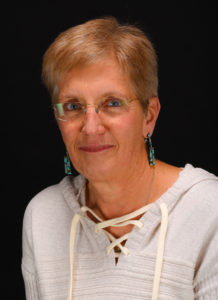
Orit Tamir
Las Vegas, N.M. – A New Mexico Highlands University anthropology professor will publish a research study that sheds new light on what matters morally to nontraditional college students 25 and older.
Orit Tamir authors the paper, “On Being Nontraditional Students: What Really Matters,” that will be published in the scholarly journal, Teaching and Learning Anthropology.
“My major finding is that nontraditional students’ primary motivation is not necessarily to get a degree,” Tamir said. “They go to school for many different reasons. Some common themes are the desire to live moral lives as good people, turn their lives around, accept health uncertainties, and be positive role models for their children and other students. Achieving an academic degree becomes a vehicle for reaching these moral goals.”
Tamir’s research is based upon face-face-face interviews with 25 Highlands University undergraduate students from the main Las Vegas campus in 2018. All are at least 25 years old and were enrolled in an anthropology class with Tamir. All are students in the College of Arts and Sciences.
Tamir said nontraditional students, also called adult learners, are a growing demographic at Highlands and nationwide.
“According to our Office of Institutional Effectiveness and Research at Highlands, 36 percent of our undergraduate students were nontraditional in 2017,” Tamir said.
Tamir said that it’s important for universities to understand that nontraditional students often need flexibility with office hours, deadlines and class attendance policies.
“These students need flexibility because they juggle so much such as family responsibilities, demanding jobs, and health issues. I find that it’s very important to spend extra time with nontraditional students,” Tamir said.
Tamir said she found the nontraditional students she studied to be both humbling and inspiring.
“These nontraditional students overcome so much hardship to be in school,” Tamir said.
Tamir said nontraditional learners bring strengths to the classroom.
“Our adult students bring their valuable life experiences to classroom discussions. They also often act as informal mentors to the younger traditional students,” Tamir said.
Tamir joined the Highlands faculty in 1997. She completed her Ph.D. in anthropology from Arizona State University. Previously, she taught at Arizona State University and Mesa Community College as adjunct faculty.
Tamir is a cultural anthropologist whose primary research interest is applied anthropology, with a focus on Native Americans of the Southwest and the anthropology of higher education.
At Highlands, Tamir teaches courses such as Introduction to Sociocultural Anthropology, Indians of the Greater Southwest, Development and Culture Change, and Magic, Witchcraft and Healing.
Tamir said her teaching goal is for her students to value otherness.
“I want my students to learn to appreciate other cultures, skin colors, religions, sexual orientations, religions, and political persuasions,” Tamir said.
During fall semester 2018, Tamir became the co-editor for the Society for Applied Anthropology News.
“This editing role keeps me up to date in developments in applied anthropology, and also gives me the opportunity to seek out new voices, opinions and research,” Tamir said.
Tamir’s research is published in scholarly publications such as Practicing Anthropology, Human Organization, and American Indian Culture and Research Journal. She edited the 2018 textbook, From Classic to Contemporary: Readings in Sociocultural Anthropology.
Tamir has served in numerous leadership roles for the Society of Applied Anthropology such as executive committee member, fellow, and program chair for annual conferences.
